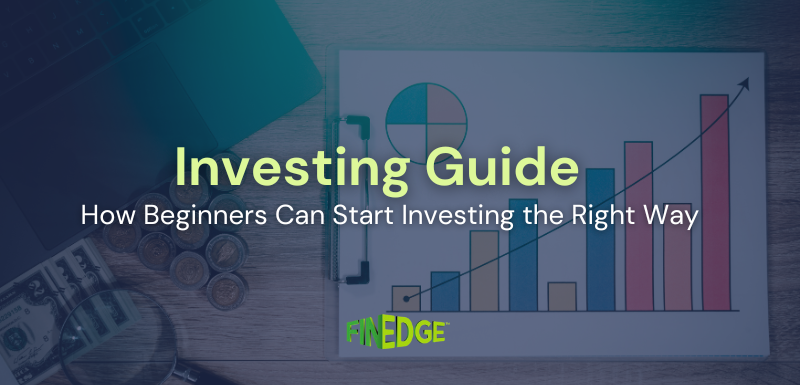Should Young People Invest in Equity? Lessons from India’s New Investing Wave
- Young investors account for 56% of new market entrants in FY26, a sharp rebound after slowing in FY25.
- Digital platforms have made investing young easy, but convenience does not equal wealth creation.
- Nearly half of mutual fund investors exit within the first year, cutting short the power of compounding.
- The true advantage for young investors lies in long-term discipline, goal-based investing, and behavior-driven success.
More young Indians are stepping into equity markets than ever before, with over half of new investors now under 30. Starting early is a powerful advantage, but without discipline and purpose, convenience-led investing can quickly turn into costly mistakes.
The share of young investors in India is rising again. According to NSE’s Market Pulse report, more than 56% of new investors in FY26 were under 30, marking a rebound after last year’s slowdown. This surge reflects how digital-first platforms, sleek onboarding, and algorithm-driven suggestions have made investing young more accessible than ever.
But while the convenience of equity investing is undeniable, it raises an important question: should young people invest in equity simply because it’s easy, or should they view it as a pathway to long-term wealth creation?
The Trends: Young Investors Rising in FY26
The numbers tell a clear story:
-
In FY26, investors under 30 made up 56.2% of new entrants, up from 53.2% in FY25.
-
At the peak in FY22, it was nearly 60%.
-
Pre-Covid (FY19), just 22.6% of registered investors were under 30; today, it’s close to 39%.
This demographic shift reflects greater awareness and accessibility. Women participation is also improving, with Maharashtra and Gujarat leading the way, though states like Uttar Pradesh still lag behind the national average.
Clearly, India’s investing landscape is younger than ever before. But is it also wiser?
Why Are More Young People Investing?
Several factors are fueling this trend:
-
Digital platforms: Investing apps with simple interfaces and one-click onboarding.
-
Social media influence: Finfluencers promoting IPOs and short-term trades.
-
Peer effect: FOMO-driven participation, especially among working professionals.
-
Financial awareness: Post-Covid, more people are thinking about investing early.
While these are positive drivers, they also mask deeper risks.
The Risks of Convenience-Led Investing
Digital convenience has blurred the line between thoughtful investing and impulsive trading. Some common pitfalls among young investors include:
-
Blind IPO investing without understanding fundamentals.
-
Overtrading because apps make it feel like a game.
-
Early exits from mutual funds, studies show that nearly 50% of investors redeem within a year.
-
Generic recommendations that are not aligned with personal goals.
The danger is clear: without purpose, young investors risk mistaking activity for progress.
A Smarter Checklist for Young Investors
While it is exciting to see this surge of the “young investor,” the real opportunity lies in long-term discipline:
-
Purpose over convenience – Start with clear financial goals.
-
Long-term over short-term thrills – Compounding only works if you stay invested.
-
Customization over standardization – Your goals are unique, so your investments must be too.
-
Process over trends – Don’t follow what’s popular; follow what’s planned.
-
Behavior over products – True “alpha” lies in disciplined investing behavior, not in picking flashy funds.
-
Patience over haste – Compounding feels slow in the beginning, but rewards the committed.
Why Starting Young Still Matters
Despite the risks, investing young remains one of the smartest financial decisions anyone can make. The simple reason is time.
Consider this: a 25-year-old who invests ₹10,000 per month in equity SIPs for 20 years could see their wealth grow exponentially compared to someone who starts at 35 with the same amount. Compounding rewards early starters by turning time into the biggest multiplier.
The key, however, is not just starting early but staying invested with purpose.
The Real Question for Young Investors
The rebound of young investors is a positive sign for India’s financial markets. But the real story will not be written in the number of new accounts opened. It will be written in how this generation behaves with its money.
Will they stay disciplined, goal-focused, and resilient, or will they get swept away by market noise and short-term temptations?
The real question every young investor must ask is this: Am I here to build long-term wealth through equity, or to chase a short-term investment frenzy?
FAQs
Your Investing Experts
Continue Reading
Beginner Investing Guide: How to Start Investing the Right Way
Investing for beginners can feel both exciting and overwhelming. With constant news about markets, social media opinions, and stories of quick gains, first-time investors often struggle to separate what truly matters from what is simply noise.
How to Save More From Everyday Expenses and Invest More Consistently
Spending smarter, timing purchases better, and being intentional with recurring expenses can create a steady surplus that can be channelled into long-term investments.
Rupee Falling? How to Protect and Grow Your Investments
When the rupee weakens, it often creates anxiety for investors. But currency depreciation is not an anomaly; it is a recurring phase in every long-term economic cycle. The real question is not whether the rupee will fall, but how investors should respond to it without derailing their long-term financial goals.

.png)


